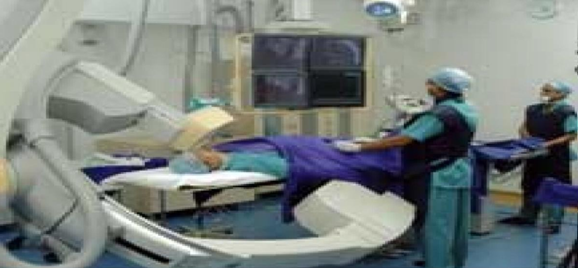
The department of medical oncology is responsible for diagnosing and treating all forms of cancer. This includes diagnostic procedures like tissue biopsy and various forms of imaging technology. Facilities for bone marrow (stem cell) transplantation are also underway for treatment of advanced stages of various forms of blood cancer.
Oncology is the branch of medicine that researches, identifies and treats cancer. A physician who works in the field of oncology is an oncologist. Oncologists must first diagnose a cancer, which is usually carried out via biopsy, endoscopy, X-ray, CT scanning, MRI, PET scanning, ultrasound or other radiological methods. Nuclear medicine can also be used to diagnose cancer, as can blood tests or tumor markers. Oncology is often linked with hematology, which is the branch of medicine that deals with blood and blood-related disorders.